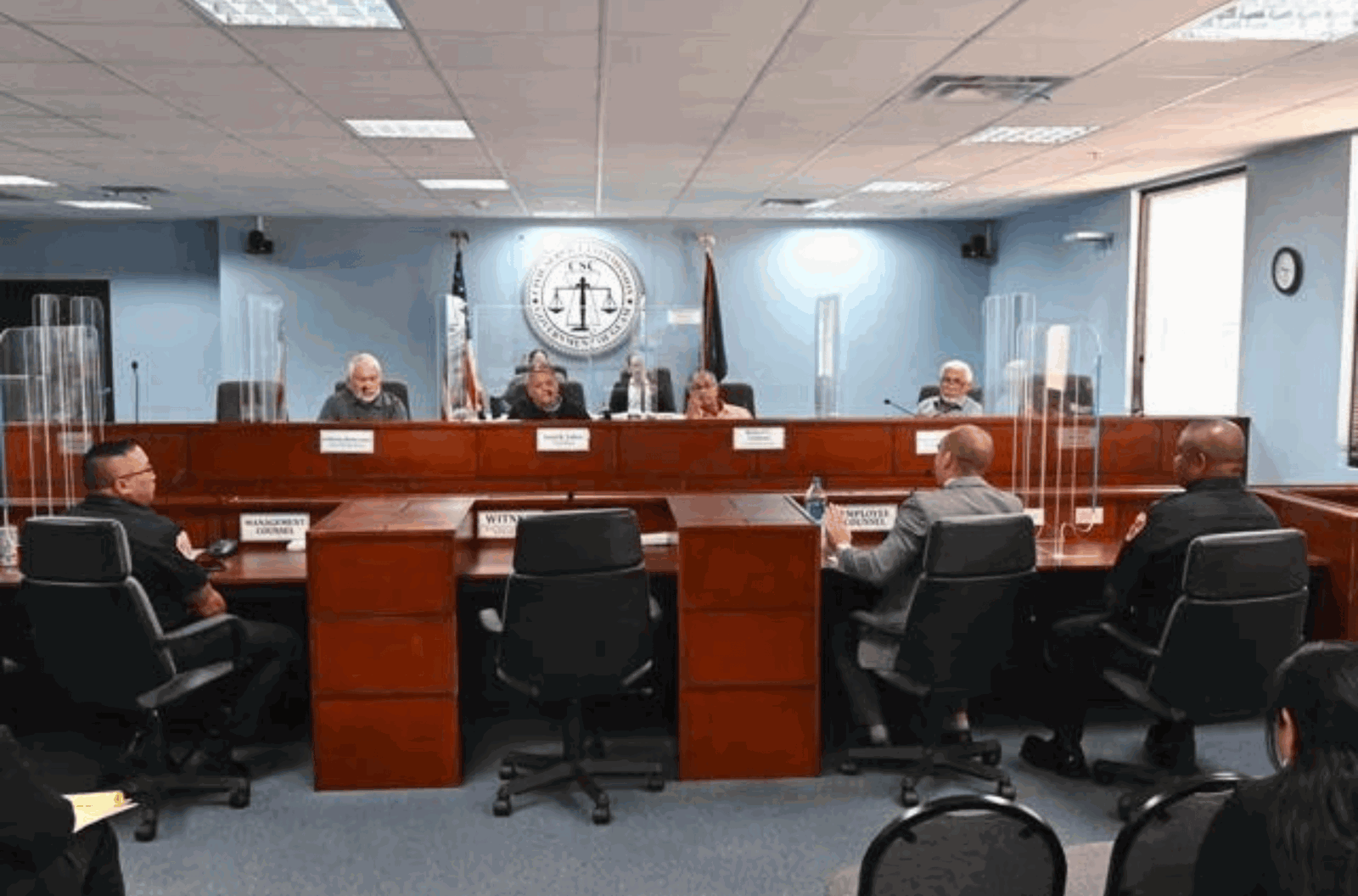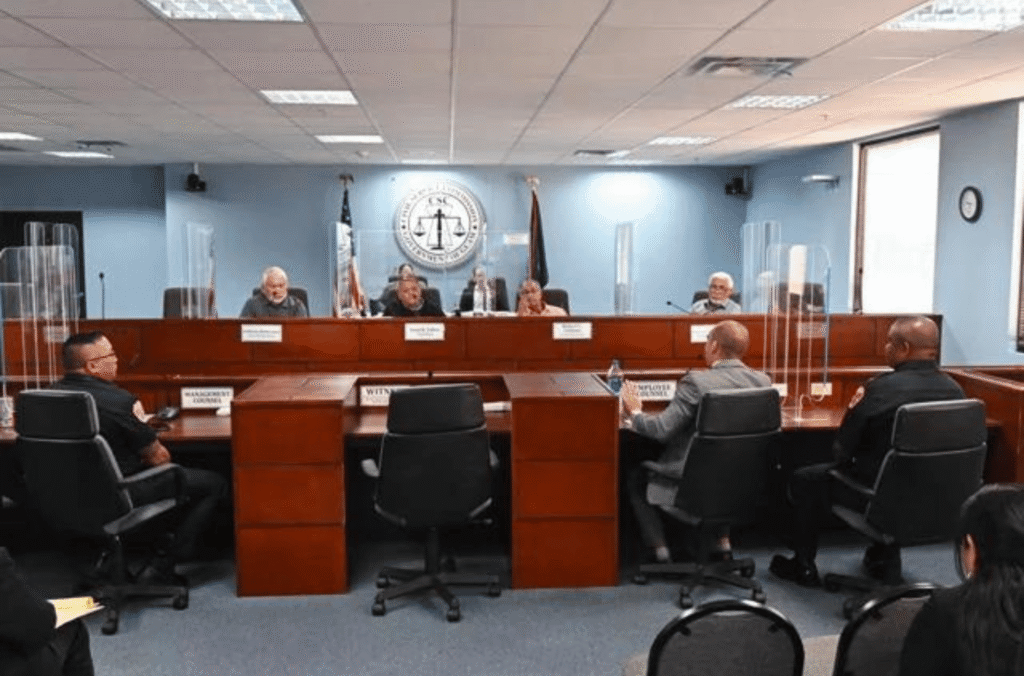HAGÅTÑA (The Guam Daily Post) — The Civil Service Commission is currently determining the impact of a writ of prohibition ordered by the Superior Court of Guam regarding, in part, lay representation and the practice of law at the commission.
But while CSC staff review the decision, comments from one lay representative indicate that there are looming impacts for individuals relying on lay representation to take their cases to the commission, as well as other potential issues down the line.
Robert Koss, who has served as a lay representative for various employees under the Guam Federation of Teachers union, stated that, with the court decision, limitations and restrictions on lay representation at the CSC “tilt the scales of justice in favor of attorneys” and that the decision is unfair to employees who cannot afford attorneys.
“But I am already beginning to see that the attorneys are not going to like some of the unanticipated consequences of this decision. I will work with these changes if I must, but this decision is broad and vague in many aspects. Certainly, the CSC must amend its existing rules,” Koss said.
When asked if the CSC will need to change rules to accommodate the writ while ensuring employee representation and what impacts the writ may have at this time, CSC Executive Director Daniel Leon Guerrero told The Guam Daily Post that the commission is concerned about the writ’s impact on the ability of employees to get lay representation.
However, the CSC will comply with the writ, is reviewing its impact and will report findings to the CSC board upon completion of that review, Leon Guerrero added.
The writ of prohibition issued by Superior Court Judge Elyze McDonald Iriarte on Feb. 20 tells the CSC to cease violating the Open Government Law, cease permitting the unlicensed practice of law in CSC proceedings, cease violating CSC rules and any applicable laws regarding the appearance of lay representatives in CSC proceedings and to cease denying the right of the Department of Corrections to a fair hearing in compliance with applicable laws.
The writ stems from a 2022 petition filed by DOC, which relates to CSC actions in the termination appeal case brought by Joseph Cruz II. Cruz was working as a corrections officer at DOC and was terminated in March 2021. The CSC later voided the termination, determining that DOC violated the 90-day rule for final adverse actions. Under current law, final adverse actions must be submitted within 90 days when management knew or should have known of the reasons for the action.
Koss served as Cruz’s lay representative in that case.
Among its claims, DOC’s petition stated the CSC repeatedly permitted a non-lawyer “to illegally engage in the practice of law by filing pleadings, making legal arguments, and otherwise arguing in furtherance of Cruz’s legal rights and remedies.”
The petition also stated that the CSC awarded attorney’s fees to Cruz despite there being no evidence that he retained an attorney, and there was no public deliberation over the award of such fees before signing the decision.
Iriarte issued an order granting the summary judgment motion on the writ of prohibition on Feb. 20. The judge detailed various reasons as to why the CSC exceeded its jurisdiction.
First, the commission allowed the unlawful practice of law, as Koss was able to perform actions in line with a lawyer, according to Iriarte.
“In the CSC proceeding, Koss drafted the motion that ultimately disposed of the proceeding. In the motion, he cited various sources of law, including the Guam Code Annotated, and applied those legal authorities to the facts of the case. Similarly, at the argument on the motion, Koss cited various sources of law, including statutes, cases and rules, and applied those legal authorities to the facts of the case. Further, upon the conclusion of the hearing, Koss submitted a proposed decision and judgment for the matter. These actions go far beyond lay representation and cannot be distinguished from the actions of an attorney,” Iriarte stated.
She added that non-attorneys may represent individuals at the CSC but that representation is limited and does not grant a general license to practice law before the commission.
Iriarte also determined that the CSC exceeded its jurisdiction by awarding attorney’s fees where none were retained, fees were not requested, and the award was not deliberated in public, as required by the Open Government Law.
However, Iriarte determined that the court did not have sufficient information to determine whether the CSC violated its own rules barring compensation of lay representatives.
The facts of the case state that Koss has been and will be compensated by GFT for appearing in CSC proceedings as a lay representative.
“It is unclear what the CSC’s role is regarding the compensation of Koss and whether the CSC’s rules would allow it to bar anyone, including employers, from compensating lay representatives such as Koss of their CSC appearances,” Iriarte stated before adding that the court declined to decide whether the CSC violated its rules by allowing Koss to appear before it while being compensated by GFT.
Iriarte also did not find that the CSC failed to comply with the Administrative Adjudication Law regarding the effective date of its decision in the Cruz case, but Iriarte did find that the commission impermissibly denied DOC a mitigation hearing and failed to ensure its proceedings were fair, impartial and conducted in accordance with law.
In a prior decision, issued in October 2023, the court also reversed and remanded the CSC’s decision in the Cruz case.

The Civil Service Commission holds a hearing Tuesday, Feb. 20, 2024, in Hagåtña.











